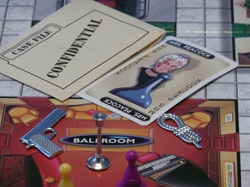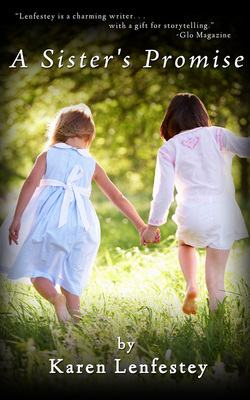
The other night, however, I wondered if this were true. My husband and I had bought the board game Clue for our seven year old daughter. In elementary school, I’d played it a couple times at a friend’s house and enjoyed it. After all, it had colorful characters like Mrs. Peacock and Professor Plum, miniature revolvers and candlesticks, and it offered the chance to play detective. I was excited that my daughter was finally old enough to play a game I’d truly enjoy. No more Candyland or Don’t Break the Ice for me.
She requested we play every night and more often than not, my husband set aside the papers he was grading and took his place around the table. It surprised us the first time our daughter solved the mystery. Then she won again. And when she didn’t win, my husband did.
Wait a minute.
I noticed a pattern developing. My husband won because of his exceptional deductive reasoning skills. My daughter won because she wasn’t afraid to guess and be wrong. But me—I waited to accuse a suspect until I was 100% sure. By that time, someone else would beat me to the punch.
Last night my daughter wanted to play again and I suggested we take a break. This game that I’d fantasized about as a child turned out to be yet another one in which I had no skill. Then my husband teased me, “Momma doesn’t want to play because she always loses.”
Here the Mommy Guilt kicked in. Everything I say and do is setting an example. How could I expect my little girl to smile and say, “Good game” after she lost when I didn’t?
So I took a deep breath and agreed to participate. Right away I could tell I was going to lose again. I rolled plenty of ones and twos. I got trapped in a room I didn’t want to be in. The fates conspired against me. Too soon my daughter bragged that she knew the weapon and the guilty party. All she had left was to figure out the location of the crime. My husband said he had it narrowed down to 25%. Ugh! I told them both to be quiet or people wouldn’t like playing with them. (And by “people” I mostly meant me.) My husband “Awwww” ed in my direction.
That’s when I realized that after plenty of experience, I hadn’t even mastered the art of losing gracefully.
Sensing that one of my opponents would soon win, I was frustrated that they seemed closer to a solution than I was. But I did have a pretty good guess. I decided to take a page from my daughter’s playbook. For the first time ever, I dared to make an accusation without 100% certainty.
Fate smiled upon me and I was right. I’d won! Finally I felt the rush of victory. I reminded myself not to smile too broadly. Good sportsmanship (and good role modeling) take effort.
What amazes me is how well my daughter handles it when she guesses the answer and is wrong. Patiently she waits for the game to end, giddy because we are doing something together as a family. She doesn’t let her mistake stop her from taking a chance the next time, either. Perhaps those who excel at games, like in life, are those willing to risk failure.
Sometimes we win and sometimes we lose. What matters is that we had fun along the way--together.
Are you a good loser? I'd love to hear your comments!
If you'd like to be the first notified about book giveaways and new releases, please click here and leave your e-mail address. I plan on giving away several copies of my novels soon!
 RSS Feed
RSS Feed


